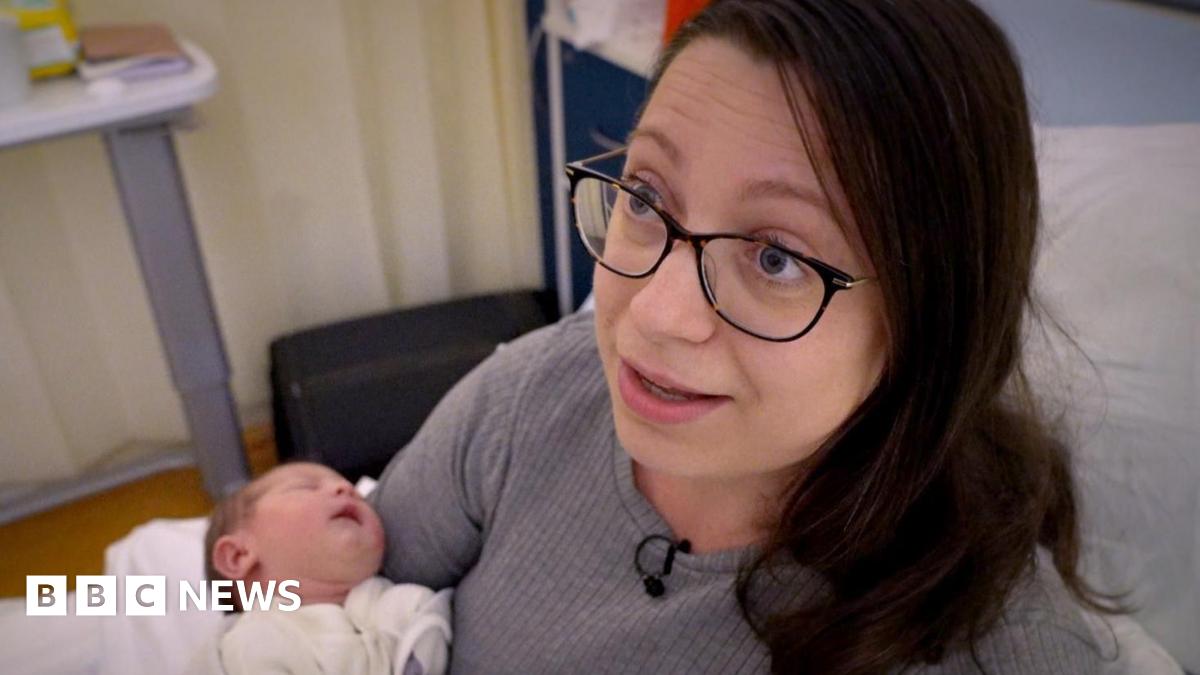Screening for Hope: The Promise of Newborn Genetic Testing
On a crisp autumn morning in Birmingham, UK, a fresh wave of tiny cries echoes through the neon-lit halls of Birmingham Women’s Hospital. Among the new parents, Dominika Nanus holds her two-day-old daughter, Emilia, in her arms, uncertainty mingling with hope. “It’s a no-brainer,” she says, motioning toward a poster on the wall advertising a pioneering genetic screening study. “This could change everything.”
The Genetic Frontier
With approximately 7,000 known single-gene disorders, the medical community has long grappled with the challenge of early diagnosis and treatment. Yet, the new initiative at Birmingham Women’s Hospital, spearheaded by Genomics England, aims to streamline this complexity by focusing exclusively on those disorders that manifest in early childhood where effective interventions exist.
“Early intervention is key,” states Dr. Ellen Thomas, chief medical officer at Genomics England. “The 200 conditions we’re screening for not only cause substantial health problems but also have effective treatments available. The earlier we catch these issues, the better the outcomes.” According to a recent study published in the *Journal of Pediatric Medicine*, early detection of genetic disorders significantly improves quality of life, reducing long-term healthcare costs and enhancing developmental trajectories for children.
The Science of Screening
The screening process involves collecting blood samples from a newborn’s umbilical cord to sequence their complete DNA. This method allows clinicians to pinpoint genetic disorders that could become critical if left undiagnosed.
- Genetic disorders targeted in this initiative include:
- Cystic fibrosis
- Spinal muscular atrophy
- Metabolic disorders like phenylketonuria (PKU)
- Sickle cell disease
These conditions can often be managed or even cured if identified in the earliest stages of a child’s life. For instance, cystic fibrosis, once a grim diagnosis, now boasts improved management and life expectancy due to early treatment interventions. “The ability to start treatment before symptoms appear can have a dramatic impact,” adds Dr. Thomas.
The Parents’ Perspective
For many parents like Jemma Jordan, opting into this screening program was a straightforward decision. Just hours after giving birth to her son, Hugo, she expressed confidence in the decision to undergo genetic testing. “I didn’t even need to name him first,” she shared, her eyes twinkling. “Knowing about potential health issues from the outset allows us to be proactive. Plus, it could help future children.”
This sentiment resonates with many parents engaging in the screening process. The dual benefits of direct personal healthcare and contributing to broader scientific knowledge have emerged as compelling motivations. Research conducted by the National Institute of Health’s Genetic Study Group found that parental participation in such initiatives not only enhances their understanding of genetic inheritance but also fosters community engagement in scientific research.
The Larger Implications
The impact of this genetic screening extends beyond individual families. The insights gained from the data collected throughout the process are invaluable, paving the way for advancements in treatments and potentially revolutionizing pediatric medicine.
“We are entering an era where we can change the narrative around genetic disorders,” says Dr. Helen Foster, a geneticist at the University of Cambridge. “Understanding and treating these conditions early will fundamentally reshape health outcomes, not just for the affected children but for health systems worldwide.” A report from the Global Child Health Organization projected that early screening could reduce childhood mortality rates linked to genetic disorders by up to 30%. This is not just a breakthrough; it’s a lifeline.
Facing Ethical Dilemmas
Despite the optimism, the rollout of extensive screening programs raises ethical questions. Concerns around parental consent, the psychological impact of receiving potentially life-altering diagnoses, and the handling of genetic data have prompted discussions among healthcare professionals and ethicists alike.
Dr. Monique Kamel, an ethicist specializing in genetic research, underscores the complexities: “As we push the boundaries of what is possible, we must also consider the long-term effects of genetic knowledge. It’s vital to have set frameworks for how the information is used and shared.” Discussions continue on whether parents should have the right to opt out of certain tests or how to manage the implications of discovering a child’s predisposition to a serious illness.
The Role of Community and Support
Support networks and informed consent processes play critical roles in easing these tensions. Many hospitals are now integrating genetic counselors into their teams to guide families through the emotional landscape of genetic testing. The goal is not just to facilitate screening but to ensure that parents feel supported throughout the decision-making process.
The overarching theme in the stories of new parents engaging with this screening program is one of hope. The understanding that effective treatments are available can be transformative for families facing the potential of genetic disorders. “We are not just looking at diagnoses; we are looking at possibilities,” says Nanus, cradling Emilia, who now carries a greater chance of a healthy life thanks to the very technologies that make early screening possible.
As families like those of Dominika Nanus and Jemma Jordan navigate the early days of parenthood, they are not just raising children—they are ushering in a new dawn in pediatric healthcare. In an age where knowledge is power, the journey of discovery is not only reshaping their lives but also holding the potential to transform the fabric of healthcare for future generations.
Source: www.bbc.co.uk


